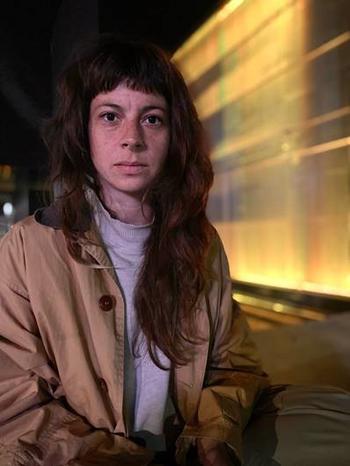Elizabeth Gallón Droste

International Research Training Group 'Temporalities of Future in Latin America'
Anthropology
PhD Project: "Vocear ríos por otros posibles futuros. Navegar el proceso del Cuerpo Colegiado de Guardianes del Atrato 2019–2022"
Education
|
05/2019 – 04/2022 |
PhD Candidate, International Research Training Group ‘Temporalities of Future’ |
|
10/2016 – 02/2019 |
Master of Arts in Interdisciplinary Latin American Studies, Freie Universität Berlin |
|
10/2010 – 09/2014 |
Bachelor of Arts in Media Culture, Bauhaus University, Weimar |
Work Experience
|
05/2019 – 04/2022 |
Researcher, International Research Training Group ‘Temporalities of Future’ |
|
Since 2015 |
Producer, Filmouflage Filmfestival |
|
Since 08/2014 |
Producer and Artist, Sinfonía Trópico: Art and Environment platform between Colombia and Germany |
|
09/2018 – 04/2019 |
Student Assistant, Collaborative Research Center: Affective Socities at the project “The Affective Creation of “Home””, directed by Prof. Dr. Ingrid Kummels |
|
10/2015 |
Researcher for the Artwork: The Parthenon of Books, documenta 14/ Leaded by: Carolin Kim |
PhD Project: "Vocear ríos por otros posibles futuros. Navegar el proceso del Cuerpo Colegiado de Guardianes del Atrato 2019–2022"
Supervisor: Prof. Dr. Ingrid Kummels, Freie Universität Berlin
This project researches, from an anthropological perspective, the process of building other possible atrateño futures, given the recognition of the Atrato Basin in Chocó-Colombia as a subject of rights, through Ruling T-622 of 2016. The recognition is the response from the Constitutional Court to a long process of denunciation done by the Community Councils of Chocó given that a profound socio-environmental crisis is latent in the Atrato. This has been generated by the non-stop devastation and contamination of the river basin - due to the negligence of the state, the presence of armed groups that dispute territorial control and drug trafficking routes, racism, deforestation and illegal mechanized gold mining with dragons and mercury.
The Ruling T-622 of 2016 orders the "protection, restoration, maintenance and conservation" of the Atrato River basin through action plans led by its spokespersons – the „Guardians of the Atrato“ – and co-created with the riverine population and various state institutions, with the goal of having all their rights restored by the year 2040. The Voices of the Atrato River consists of six women and eight men who represent the indigenous, mestizo, and afro-descendent organizations and communities settled throughout the basin.
In the construction of the action plans and thus of the other possible futures desired in the river, the Voices of the Atrato River face the challenge of translating and implementating the objectives of the T-622 of 2016. Also to unite and converge in the plurality of voices that merge in the basin, to translate and represent the river legally, and are confronted with the multiple intertwined, overlapping, and tense temporalities that converge in its waters. I argue that the recognition of the river as a subject of rights opens up possible transitions and re-assamblages from the modern "one world" temporality full of defuturizing practices, to the pluriverse of configurations with futurizing potential (Escobar, 2016), based on the relationships with rivers. I inquiry how the interlinkages of temporalities that converge in the basin operate in this process, thus revealing the diverse layers of temporalities, rhythms and cycles that are entwined with the flow of the Atrato.
Books
2023 Útica. Bajo el arrullo de las aguas. Self-published. Porto: anaresende-editorial. ISBN 978-989-333927
Contributions in Books
2025 "Ecofonías esquivas del mercurio en el Atrato – Colombia", Rike Bolte, Hermann Doetsch, Benjamin Loy & Susanne Schlünder (eds.), Existencias contaminadas. Escenarios ecosistémicos del Antropoceno en América Latina, Vol. 20, Berlin, Boston: De Gruyter, 125–140 (=Latin American Literatures in the World): https://doi.org/10.1515/9783111339290-008
2021 "'We Echo' in knowbotiq 'Remote Sensations'", Amazonia: Anthology as Cosmology, Kateryna Botanova & Quinn Latimer (eds.), 299. London: Sternberg Press. ISBN 978-3-95679-611-1.
Articles in Journals
2023 voicing ~ listening to rivers of gold. In: Wasser Botschaften. Museum am Rothenbaum – Kulturen und Künste der Welt –MARKK– [in Press].
2021 Navigating futures through rivers of gold. Critical Reviews on Latin American Research, 9 (1): 75-85. https://www.crolar.org/index.php/crolar/article/view/375/pdf_1.


